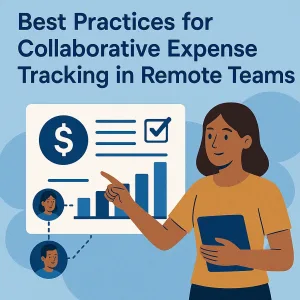Introduction
Becoming a project coordinator is an exciting entry point into the world of project management, especially for those who may not have prior experience in the field. A project coordinator plays a crucial role in ensuring that projects run smoothly by assisting project managers, communicating vital information to teams, and prioritizing tasks for successful project completion. This position requires a blend of organizational skills, effective communication, and the ability to make quick decisions, making it an ideal starting point for aspiring project managers.
In this journey, mentorship emerges as a pivotal element in professional development. Mentorship involves guidance from experienced professionals who can provide insights, share knowledge, and offer support as you navigate the complexities of the project management landscape. A mentor can help you understand the nuances of the role, develop essential skills, and build a network that can open doors to future opportunities.
This blog post will delve into the importance of mentorship in your journey to becoming a project coordinator. We will explore how mentorship can enhance your learning experience, provide practical advice for entering the field without prior experience, and highlight the skills and competencies you should focus on developing. By the end of this post, you will have a clearer understanding of how to leverage mentorship to accelerate your career in project management.
Understanding the Role of a Project Coordinator
Becoming a project coordinator is an excellent entry point into the field of project management, especially for those starting without prior experience. This role is pivotal in ensuring that projects are executed smoothly and efficiently. Here’s a closer look at the core responsibilities and essential skills required for success in this position, along with how mentorship can play a crucial role in your development.
Core Responsibilities of a Project Coordinator:
- Assisting the Project Manager: A project coordinator primarily supports the project manager by communicating project-related information to teams and stakeholders, ensuring that everyone is aligned with the project goals and timelines [2].
- Organizing Project Tasks: They are responsible for organizing tasks, prioritizing them, and ensuring that all aspects of the project are progressing as planned. This includes scheduling meetings, tracking project milestones, and maintaining documentation [8].
- Enhancing Team Performance: Project coordinators work to elevate the productivity and efficiency of their teams, which involves monitoring progress and addressing any issues that may arise during the project lifecycle [3].
Essential Skills Needed for Success:
- Communication: Effective communication is vital for a project coordinator, as they must relay information clearly and concisely to various stakeholders [6].
- Organization: Strong organizational skills are necessary to manage multiple tasks and deadlines simultaneously, ensuring that nothing falls through the cracks [6].
- Problem-Solving: The ability to make quick and effective decisions is crucial, especially when unexpected challenges arise during a project [2].
The Role of Mentorship in Skill Development:
Mentorship can significantly enhance your journey to becoming a project coordinator by providing guidance and support in several ways:
- Skill Development: A mentor can help you identify and develop the essential skills needed for the role, such as communication, organization, and problem-solving. They can provide practical advice and share their experiences, which can be invaluable for your growth [11].
- Networking Opportunities: Mentors often have extensive networks in the industry, which can open doors for you. They can introduce you to other professionals, helping you build relationships that may lead to job opportunities [11].
- Real-World Insights: Mentors can offer insights into the day-to-day responsibilities of a project coordinator, helping you understand the nuances of the role that may not be covered in formal education or training [10].
Why Mentorship Matters in Project Management
Embarking on a career as a project coordinator can be daunting, especially for those without prior experience. However, mentorship can play a crucial role in easing this transition and enhancing professional development. Here are some key points that highlight the unique benefits of mentorship in the field of project management:
- Navigating Career Pathways: Having a mentor can significantly aid in navigating the often complex career pathways within project management. Mentors provide guidance on the skills and experiences necessary to advance in the field, helping mentees identify opportunities that align with their career goals. This relationship can be particularly beneficial for aspiring project coordinators who may be unsure of the steps to take to enter the industry [2][6].
- Industry Insights and Real-World Experiences: Mentors bring a wealth of knowledge and experience to the table, offering insights that are not typically found in textbooks or formal training. They can share valuable lessons learned from their own careers, including best practices, common pitfalls, and effective strategies for managing projects. This real-world perspective can help mentees understand the nuances of project management and prepare them for the challenges they may face [3][8].
- Building Confidence and Competence: One of the most significant benefits of mentorship is the boost in confidence it provides. A mentor can help mentees develop their skills and competencies through constructive feedback and encouragement. This support is essential for new project coordinators who may feel overwhelmed by their responsibilities. By fostering a safe environment for learning and growth, mentors empower their mentees to take on new challenges and build their professional capabilities [4][9].
Finding the Right Mentor
Embarking on a career as a project coordinator can be challenging, especially for those without prior experience. One of the most effective ways to navigate this journey is through mentorship. A mentor can provide invaluable guidance, share their experiences, and help you develop the skills necessary to succeed in project management. Here are some key points to consider when looking for the right mentor.
Where to Look for Mentors:
- Professional Networks: Start by tapping into your existing professional network. This could include colleagues, professors, or industry contacts who may have insights into project management. Engaging with these individuals can lead to potential mentorship opportunities.
- Professional Associations: Many industries have professional associations that offer networking events, workshops, and forums. Joining these organizations can connect you with experienced professionals who are willing to mentor newcomers in the field [5].
- Online Platforms: Utilize social media and professional networking sites like LinkedIn to find mentors. Look for groups focused on project management where you can engage with experienced professionals. Online platforms often provide a space for mentorship connections to flourish [5].
Tips on How to Approach Someone for Mentorship:
- Be Polite and Concise: When reaching out to a potential mentor, craft a polite and concise message. Introduce yourself, express your interest in their work, and explain why you are seeking their guidance. A well-thought-out message can make a positive impression [7].
- Be Specific About Your Goals: Clearly articulate what you hope to learn from the mentorship. This could include specific skills, industry insights, or career advice. Being explicit about your goals helps the mentor understand how they can assist you [6].
- Show Appreciation: Acknowledge the mentor’s time and expertise. Express gratitude for their consideration, regardless of whether they agree to mentor you. This respectful approach can leave the door open for future interactions [7].
Aligning Interests and Goals:
- Understand Each Other’s Backgrounds: Take the time to understand the experiences and values that both you and your potential mentor bring to the relationship. This mutual understanding sets the context for the advice and guidance you will receive [4].
- Shared Interests: Look for mentors whose interests align with your career aspirations. This alignment can enhance the mentorship experience, as both parties will be more invested in the relationship and its outcomes [8].
- Long-term Goals: Discuss your long-term career goals with your mentor. This conversation can help ensure that the mentorship is focused on your development and that the mentor can provide relevant insights based on their own experiences [6].
Building a Successful Mentorship Relationship
Embarking on a journey to become a project coordinator, especially without prior experience, can be daunting. However, mentorship can play a pivotal role in your professional development, providing guidance, support, and valuable insights. Here are some practical tips to foster a productive mentorship experience:
1. Set Clear Expectations and Goals
Establishing clear expectations and goals at the outset of your mentorship relationship is crucial. Both you and your mentor should discuss what you hope to achieve through this partnership. This could include specific skills you want to develop, knowledge you wish to gain about project management, or even networking opportunities. By defining these objectives, you create a roadmap that guides your interactions and ensures that both parties are aligned in their efforts [12][11].
2. Emphasize the Importance of Communication and Feedback
Effective communication is the cornerstone of any successful mentorship. It is essential to maintain open lines of dialogue with your mentor, sharing your thoughts, questions, and concerns. Regularly seeking feedback on your progress not only demonstrates your commitment to growth but also allows your mentor to provide tailored advice that can enhance your learning experience. Remember, constructive feedback is a valuable tool for improvement, so be receptive and proactive in discussing it [15][13].
3. Take Initiative and Be Proactive
As a mentee, it is important to take the initiative in your mentorship relationship. This means actively engaging with your mentor, scheduling meetings, and coming prepared with topics to discuss. Show your mentor that you are invested in your development by seeking out opportunities to apply what you learn. Whether it’s volunteering for projects, asking for additional resources, or requesting introductions to other professionals in the field, being proactive can significantly enrich your mentorship experience [8][11].
Alternative Learning Paths Without Formal Mentorship
For aspiring project coordinators, mentorship can be a valuable asset in navigating the complexities of project management. However, not everyone has access to a traditional mentor. Fortunately, there are numerous alternative learning paths that can help you develop the skills and knowledge necessary to succeed in this field.
- Online Courses and Webinars: The digital age has made it easier than ever to access a wealth of knowledge through online platforms. Websites like Coursera, Udemy, and LinkedIn Learning offer a variety of courses specifically tailored to project management. These courses often cover essential topics such as project planning, risk management, and communication skills, providing a solid foundation for your career. Additionally, webinars hosted by industry professionals can offer insights into current trends and best practices, allowing you to stay informed and engaged in the field [1][12].
- Networking Events: Engaging in networking events can be an excellent way to connect with other professionals in the project management community. These events provide opportunities to meet experienced project managers, learn from their experiences, and even find informal mentors. Participating in local project management chapters or attending industry conferences can help you build a network of contacts who can offer guidance and support as you embark on your career [11][12].
- Peer Mentoring and Study Groups: If formal mentorship is not an option, consider forming or joining a study group with fellow aspiring project coordinators. Peer mentoring can be incredibly beneficial, as it allows you to share knowledge, discuss challenges, and learn from each other’s experiences. This collaborative approach not only enhances your understanding of project management concepts but also fosters a sense of community and support among peers [11][12].
- Self-Directed Learning: Taking the initiative to pursue self-directed learning is crucial for professional development. This can involve reading industry publications, following relevant blogs, or engaging with online forums and communities focused on project management. By actively seeking out information and resources, you can enhance your skills and stay updated on the latest developments in the field [8][12].
- Continuous Improvement: Embracing a mindset of continuous learning is essential in the dynamic field of project management. Whether through formal courses, networking, or self-study, consistently seeking to improve your knowledge and skills will prepare you for the challenges ahead. This proactive approach not only enhances your resume but also positions you as a committed and knowledgeable candidate in the job market [15][12].
Success Stories: Mentorship in Action
Mentorship plays a pivotal role in shaping the careers of aspiring project coordinators, especially for those starting without prior experience. By connecting with seasoned professionals, mentees can gain invaluable insights, guidance, and support that can significantly enhance their career trajectories. Here are some inspiring success stories and key points that illustrate the transformative power of mentorship in the field of project management.
- Real-Life Testimonials: Many individuals have shared how mentorship has been a game-changer in their careers. For instance, one mentee noted, “Through the Mentorship Program, I was able to receive guidance and build confidence in my ability to grow in my career and challenge myself” [3]. This highlights how mentorship not only provides practical advice but also fosters personal growth and self-assurance.
- Case Studies of Success: Research indicates that a significant percentage of executives attribute their success to mentorship. In fact, 75% of executives credit their achievements to having mentors, and 90% of employees with a career mentor report improved career outcomes [6][8]. These statistics underscore the importance of mentorship in navigating the complexities of project management and advancing one’s career.
- Diverse Mentorship Styles: Mentorship can take various forms, each with its unique effectiveness. Some mentors adopt a hands-on approach, providing direct guidance and feedback, while others may take a more facilitative role, encouraging mentees to explore solutions independently. This diversity allows mentees to find a mentorship style that resonates with their learning preferences, ultimately enhancing their development [9].
- Visualizing Success: Aspiring project coordinators should take a moment to envision their own success stories through mentorship. Imagine having a mentor who not only shares their expertise but also challenges you to step outside your comfort zone. This relationship can lead to new opportunities, skill development, and a deeper understanding of project management principles. As one successful mentee reflected, “Mentorship became key to my success. It taught me the value of strong relationships and the ripple effect they can have on my career” [15].
Conclusion
In the journey to becoming a project coordinator, mentorship plays a crucial role in professional development. It provides aspiring coordinators with invaluable guidance, support, and knowledge that can significantly enhance their skills and confidence. Mentors can help you navigate the complexities of project management, offering insights that come from their own experiences and successes. This relationship not only fosters personal growth but also prepares you to tackle the challenges of the role effectively [2][8].
To take actionable steps towards finding a mentor, consider the following strategies:
- Network Actively: Attend industry events, workshops, and seminars where you can meet experienced project managers and coordinators. Engaging in conversations can lead to potential mentorship opportunities.
- Utilize Online Platforms: Leverage professional networking sites like LinkedIn to connect with individuals in the project management field. Don’t hesitate to reach out and express your interest in learning from their experiences.
- Join Professional Organizations: Many organizations offer mentorship programs specifically designed for those entering the project management field. These programs can provide structured support and guidance [6][9].
As you embark on this journey, we encourage you to share your experiences or seek guidance from others. Whether you have found a mentor or are still searching, your story can inspire fellow aspiring project coordinators. Engaging with a community of like-minded individuals can also provide additional support and resources as you work towards your career goals. Remember, mentorship is not just about receiving advice; it’s also about building relationships that can last throughout your professional life [4][8].
Find out more about Shaun Stoltz https://www.shaunstoltz.com/about/.
This post was written by an AI and reviewed/edited by a human.



